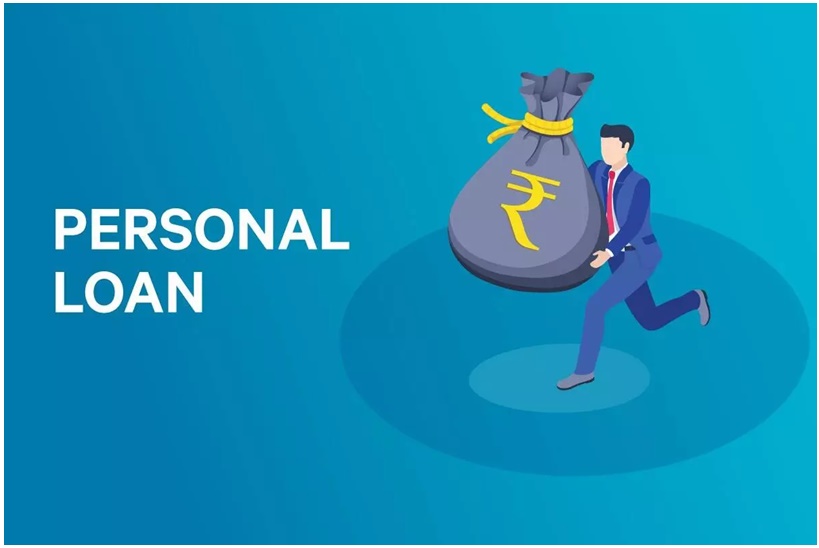Personal loans have become an indispensable financial tool in today’s fast-paced world, assisting individuals in meeting immediate financial requirements. Whether it is for medical emergencies, weddings, or home renovations, personal loans provide instant funds without the need for collateral. However, like every financial product, personal loans come with terms and conditions, including pre closure charges. In this article, we will explore pre closure charges for personal loans, their significance, and their impact on borrowers. Additionally, we’ll touch upon how these charges interplay with borrowing conditions like instant personal loan with low CIBIL scores.
What Are Pre Closure Charges for Personal Loans?
When you take a personal loan, you agree to pay back the borrowed amount in monthly installments over a pre-determined tenure, which typically ranges between 12 months to 60 months. However, if your financial situation improves or you receive a lump sum amount (e.g., a bonus or inheritance), you may want to close your loan early before the scheduled tenure. This is referred to as “pre closure” or “foreclosure” of the loan.
Pre closure charges for personal loan are the fees imposed by the lender when a borrower decides to repay their outstanding loan amount before the end of the loan tenure. These charges are essentially a penalty to compensate the lender for the loss of interest they would have earned if the loan continued for the full term.
Importance of Understanding Pre Closure Charges
While prepaying a loan early may seem like a simple and beneficial way to reduce your financial burden, failing to understand the implications of pre closure charges can lead to unexpected costs. Here are some reasons why understanding these charges is crucial for every borrower:
1. Financial Planning
The decision to close your personal loan early should not be taken lightly. While pre closure can save you interest payments, the fees associated with it can counteract some of those savings. By understanding pre closure charges, you can weigh the financial benefits of early termination against the additional costs to make an informed decision.
2. Loan Flexibility
Pre closure charges vary among lenders and are often tied to the terms and conditions of the personal loan. Some lenders may not allow prepayment within the first 6–12 months of the loan tenor or may impose higher charges during this period. Knowing these terms ensures that borrowers are aware of when and how they can opt for pre closure without any surprises.
3. Cost Comparison Between Lenders
Understanding pre closure charges helps borrowers assess the true cost of borrowing. For example, if you are taking an instant personal loan low CIBIL, you may initially be focused on simply securing the funds. However, comparing the pre closure policies of different lenders ensures that you don’t end up paying higher penalties in the event of early repayment.
4. Improved Credit Management
Pre closure can impact your credit history and score as well. By paying off your loan early and ensuring the handling of all associated charges, you not only clear debt but also showcase your ability to take financial responsibility, which could improve your financial profile in the long run. For those with low CIBIL scores, effectively managing your personal loan through planned pre closure can help repair your creditworthiness over time.
How Are Pre Closure Charges Calculated?
The calculation of pre closure charges depends on several factors, such as the lender’s policy, the remaining loan tenure, and the amount outstanding. Most lenders charge a percentage of the outstanding principal amount as the pre closure fee. This percentage can range from 2% to 5% and may include Goods and Services Tax (GST) as applicable.
For instance:
- If you have an outstanding loan amount of ₹5,00,000 and the lender charges a 3% pre closure fee, you will have to pay ₹15,000 (3% of ₹5,00,000) as the pre closure charge, in addition to clearing the principal. It is essential to review the pre closure clause in the loan agreement and seek clarification from the lender if anything is unclear.
Things to Consider Before Opting for Pre Closure
When contemplating pre closure of your personal loan, here are some factors you should consider:
1. Break-Even Point
Calculate whether the interest savings from prepaying the loan outweigh the pre closure charges. This is particularly important for long-term loans where a significant portion of the interest is front-loaded during the initial EMIs.
2. Timing of Pre Closure
Many lenders impose restrictions on when you can prepay your loan. Typically, pre closure in the first year might attract higher charges. Waiting for a certain period (e.g., 12 months) could help reduce these fees.
3. Impact on Savings
Ensure that the funds you plan to use for pre closure aren’t coming from your emergency savings. Prepaying your loan should not deplete your liquidity or sacrifice your future financial goals.
4. Comparison of Offers
For those with low CIBIL scores, securing an instant personal loan often involves higher interest rates and stricter terms. However, by comparing lenders that offer lenient pre closure policies, you can reduce long-term borrowing costs.
Loan Pre Closure for Borrowers With Low CIBIL Scores
Borrowers with low CIBIL scores often face challenges in securing loans due to their perceived higher credit risk. However, some lenders offer instant personal loans with low CIBIL by compensating for the risk through higher interest rates or stricter policies. For such borrowers, pre closure can be a smart financial strategy if planned well. By closing the loan early, they can save on interest expenses and work toward improving their credit score. However, they must be extra cautious of pre closure charges, which could negate the benefits of early repayment.
Conclusion
Pre closure of a personal loan is a double-edged sword—it has the potential to save you a significant amount in interest, but only if the associated charges are reasonable. Borrowers can benefit from understanding pre closure charges for personal loans and analyzing whether early repayment makes financial sense for them. For individuals with low CIBIL scores, securing an instant personal loan with low CIBIL may initially seem costly, but strategic pre closure can help reduce the financial burden over time.
Before opting for pre closure, carefully evaluate the lender’s policies, compare costs, and make an informed decision to safeguard your financial well-being. Remember, responsible financial planning is the key to long-term stability. Whether you decide to continue with your loan or opt for pre closure, always prioritize financial discipline and clarity regarding loan terms.








